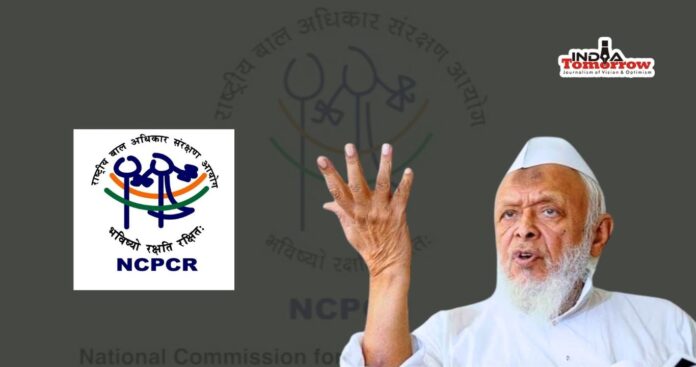India Tomorrow
NEW DELHI: Jamiat Ulema-i-Hind (Arshad Madani) has welcomed the Supreme court order staying the communications of the Central government as well as order of UP and Tripura state government with regard to implementation of NCPCR’s recommendation to close down all recogznised madrasas and admit their students to government-run schools as the madrasas, according to NCPCR, don’t follow RTE act.
He said the apex court order was a victory for constitutional rights in the country.
The stay order was given on a petition filed by JUH(Arshad Madani), challenging the NCPCR’s recommendations and orders of the UP and Tripura state government’s issuing notifications to implment the NCPCR’s recommendations.
The Supreme Court has granted the liberty to implead all States and Union Territories in this matter.
The order was given by a Supreme Court bench, consisting of Chief Justice Dr. D.Y. Chandrachud, Justice J.B. Pardiwala, and Justice Manoj Misra,.
States such as Uttar Pradesh, Tripura, and Bihar had already taken steps based on NCPCR’s letters, leading to harassment of madrassas, pressure to shut down, and forced enrollment of their students in other schools.
Represented by Senior Advocate Indira Jaising and Advocate on Record Fuzail Ahmad Ayyubi, Jamiat Ulama-i-Hind emphasized the constitutional protections afforded to minority educational institutions under Article 30(1), alongside Articles 25 and 26, which guarantee freedom of conscience and the right to manage religious institutions. The Supreme Court has consistently upheld these rights, notably in a 2014 ruling affirming that the Right to Education Act, 2009, does not apply to minority-run educational institutions, including madrassas and Vedic pathshalas.
Despite these protections, the NCPCR has repeatedly targeted madrassas and their students, issuing unconstitutional objections, including the exclusion of non-Muslims from madrassas. Historically, madrassas have served as crucial educational institutions, similar to Vedic pathshalas, offering education to diverse groups.
Maulana Arshad Madani, President of Jamiat Ulama-i-Hind, welcomed the Supreme Court’s decision, expressing hope for a favourable final verdict. He cautioned that those infringing upon constitutional rights will face consequences and lamented ongoing conspiracies aimed at undermining the special rights of minorities.
He reiterated that Article 30(1) protects minority educational institutions, while Article 25 ensures freedom of conscience and Article 26 grants minorities autonomy in managing their institutions. Citing the Supreme Court’s earlier decisions, he noted that the Right to Education Act explicitly exempts madrassas and similar institutions.
Maulana Madani highlighted the vital role madrassas play in the education of Islamic scholars and asserted that sectarian forces fail to understand their historical significance. He emphasized that the Jamiat Ulama-i-Hind, deeply rooted in madrassa education, is committed to safeguarding constitutional rights.
In light of the Supreme Court’s stay, Maulana Arshad Madani remarked that it halts the intentions of those working against the Constitution. He stressed the importance of protecting the Constitution for the nation’s survival, announcing that Jamiat Ulama-i-Hind will host a grand conference for constitutional protection in New Delhi on November 3, 2024.





